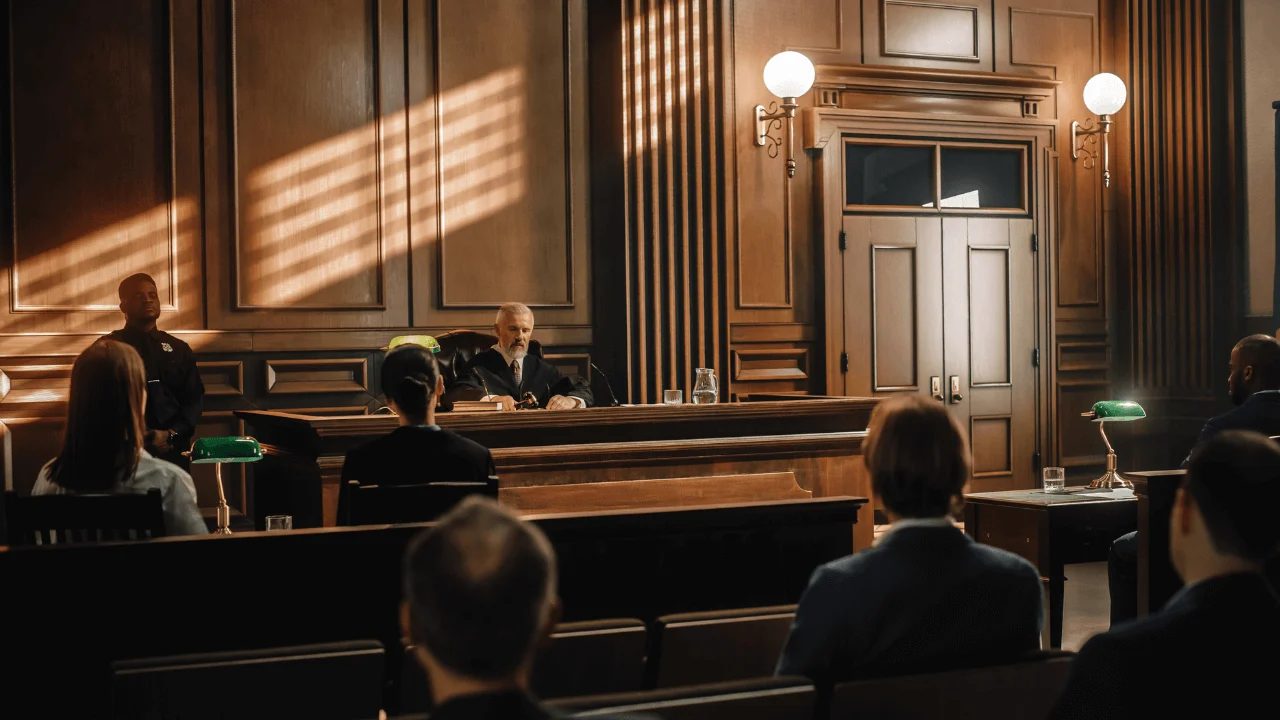
Justice Lee’s judgment a reminder to the profession of the importance of the Harman undertaking in all areas of litigation
Published on April 23, 2024 by Joshua Dale, Kate Flanigan and Luca Circosta
Justice Michael Lee of the Federal Court of Australia delivered his judgment in Lehrmann v Network Ten Pty Limited (Trial Judgment) [2024] FCA 369 in what was another in a sequence of highly publicised and scrutinised defamation trials to come before the Federal Court in recent years. On a more nuanced level, Justice Lee’s analysis of what he termed the ‘Spotlight Detour’ provides a timely reminder to the legal profession as to the application of the principles in Hearne v Street (2008) 235 CLR 125 (‘Hearne’) and the importance of the implied undertaking in proceedings.
The principles in Hearne are often referred to as the ‘Harman Undertaking’ or the ‘implied undertaking’. This is as Hearne is the Australian High Court case that adopted the findings of the UK case of Harman v Secretary of State for the Home Department [1983] 1 AC 280 (‘Harman’) and has become the leading statement of the principle in the Australian jurisdiction.
Justice Lee in the Lehrmann judgment was tasked with considering whether Mr Lehrmann provided materials to the Seven Network Spotlight programme contrary to his subsisting legal obligations (i.e. a breach of the principles in Hearne). Justice Lee explained the Hearne obligation as follows:
“As is well known, and as was explained by the High Court in Hearne v Street [2008] HCA 36; (2008) 235 CLR 125, where one party to litigation is compelled, either by reason of a rule of court, or by reason of a specific order of the court, or otherwise, to disclose documents or information, the party obtaining the disclosure cannot, without the leave of the court, use it for any purpose than that for which it was given unless it is received into evidence. The obligation extends to anyone who receives the documents or information knowing the documents or information have been disclosed by compulsion. The circumstances in which this substantive legal obligation, which I will call the Hearne v Street obligation, no longer subsist are broader than receipt into evidence, but this detail need not detain us: see Treasury Wine Estates Limited v Maurice Blackburn Pty Ltd [2020] FCAFC 226; (2020) 282 FCR 95.”[1]
While Justice Lee confirmed he was ‘not some sort of roving law enforcement official’, the implication being that any action for contempt of court for a breach of the Hearne obligation would not be within the jurisdiction of his Court, he did make a finding that he was satisfied that Mr Lehrmann made (or caused to be made) false representations as to the broadcast of material apparently subject to the Hearne obligation. It would be a matter for the ACT Director of Prosecutions as to whether further action is taken in relation to Mr Lehrmann for any alleged breach of the Hearne obligation.
Justice Lee’s decision in a very public trial acts as a reminder of the importance of the Hearne obligation in respect of documents produced in proceedings. As set out in Hearne:
“Where one party to litigation is compelled, either by reason of a rule of court, or by reason of a specific order of the court, or otherwise, to disclose documents or information, the party obtaining the disclosure cannot, without the leave of the court, use it for any purpose other than that for which it was given unless it is received into evidence. The types of material disclosed to which this principle applies include documents inspected after discovery, answers to interrogatories, documents produced on subpoena, documents produced for the purposes of taxation of costs, documents produced pursuant to a direction from an arbitrator, documents seized pursuant to an Anton Piller order, witness statements served pursuant to a judicial direction and affidavits.”[2]
Put simply, if you receive any document or piece of information in litigation from another party and, the party providing that document did so under compulsion of the court, you are unable to use that document or information for any purpose other than that litigation without leave of the court. Leave of the court may be granted for various reasons determined on a case-by-case basis and include considerations as to whether there may be a legitimate public interest in the proposed wider use of the evidence.
Notably, in Hearne the implied undertaking stopped applying to documents once they had been admitted into evidence. As alluded to by Justice Lee, [3] the principle has since evolved, whereby the obligation also ceases to apply in respect of documents which have been made publicly available during a proceeding. In Treasury Wine Estates Limited v Maurice Blackburn Pty Ltd, pleadings which had been published on the court website and were thus publicly available were not subject to the Hearne obligation. [4] This could therefore reasonably extend to any other documents made publicly available in proceedings such as transcripts.
Moreover, it is clear from Hearne, though not relevant in the Lehrmann trial, that the implied undertaking binds anyone to whom documents and information are given in proceedings, including for example a party’s solicitors and any expert witnesses who are each directly bound by the obligation and are not merely potentially liable as an accessory to a breach by the party. [5] This was indeed the case in Harman when the person in contempt was the party’s solicitor.
Of note is the fact that there is no suggestion that knowledge of the Hearne obligation and its consequences must be held by the person in breach. It is sufficient to establish a breach of the Hearne obligation in circumstances where the person in breach is merely found to have knowledge of the origins of the material in legal proceedings. That is, ignorance of the law does not prevent liability arising. [6]
Finally, the principles set out in Hearne establish a substantive legal obligation imposed by law and there is therefore ‘an obligation to the Court, not the other party, which is implied. It is for that reason that its breach is treated as contempt’. [7] That is to say, in most circumstances, a breach of the Hearne obligation could result in a charge of civil contempt of Court for the person in breach, whether that be a party, their solicitor, an expert etc. Contempt of court is serious and can result in a fine or imprisonment depending on the circumstances of the breach (including whether the breach was intentional). For solicitors, this may also result in a complaint to the Legal Services Commission. Steps would also likely be taken by the Court to purge the breach which may include prohibiting a party from relying on the relevant documents in proceedings.
Anyone engaging in court proceedings should be aware of the Hearne obligation and its applicability to documents in proceedings. For any party or non-party (for example a witness) to proceedings who may be concerned about a potential breach of the Hearne obligation advice should be sought as to any potential legal consequences.
Please note that this article does not constitute legal advice. If you are seeking professional advice on any legal matters, you can contact Carroll & O’Dea Lawyers on 1800 059 278 or via our Contact Page and one of our lawyers will be able to assist you.
[1] Lehrmann v Network Ten Pty Limited (Trial Judgment) [2024] FCA 369 [173].
[2] Hearne v Street (2008) 235 CLR 125 [96].
[3] Hearne v Street (2008) 235 CLR 125 [173].
[4] [2020] FCAFC 226; (2020) 282 FCR 95.
[5] Hearne v Street (2008) 235 CLR 125 [109].
[6] Hearne v Street (2008) 235 CLR 125 [112].
[7] Bourns Inc v Raychem Corp [1999] 1 All ER 908 at 915 [16].


